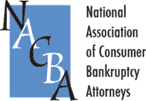
If you are struggling to pay your bills and wondering about your financial future, you may consider filing for bankruptcy. There are a few things you should carefully consider before you take the next step of filing for bankruptcy. Bankruptcy is a legal process that can help you eliminate some or all of your debt to have a fresh financial start. Filing for bankruptcy will stop your creditors from demanding payment from you and from foreclosure. Below are some of the most critical factors you should consider before filing for bankruptcy.
Consider the Timing of Filing for Bankruptcy
That accumulates over time, but filing for bankruptcy happens at a single moment. You should consider whether now is the best time for you to file for bankruptcy. Dischargeable debts accumulated before you file for bankruptcy can be discharged or wiped out. However, any deaths you acquire afterward will still be your financial responsibilities unless and until you file for bankruptcy again.
You may have to wait a while before you file for bankruptcy again. For example, you can only file Chapter 7 bankruptcy once every eight years. You can only file for chapter 13 bankruptcy once every six years. If you anticipate accumulating more debt in the near future, you may want to wait until after you have accumulated that debt to file for bankruptcy.
Understand Eligibility Requirements for Different Forms of Bankruptcy
When you file for bankruptcy, you will need to meet multiple requirements that can vary based on which type of bankruptcy you are pursuing. As a person filing for bankruptcy, you will need to complete a credit counseling course and meet certain types of income guidelines before moving forward with your application. Chapter 7 and chapter 13 bankruptcies are the most common types of bankruptcies. They have different eligibility requirements.
For a Chapter 7 bankruptcy, you will need to meet income requirements. Specifically, you do not need to show that your average monthly income in the last six months is lower than the median income for the same size household in your state. If you do not pass this test, you will need to pass the means test. The means test will calculate whether your disposable income is high enough to make partial payments to unsecured creditors. If you fail the means test, you will not be able to file for chapter 7 bankruptcy, but you can pursue a Chapter 13 bankruptcy.
For a Chapter 13 Bankruptcy, you will need to have enough income to make monthly debt payments as outlined in your bankruptcy plan. Your unsecured debts and secured debts must be less than $2,750,000 as you file for bankruptcy. With both forms of bankruptcy, you will need to complete an approved credit counseling class and me to the requirements for waiting a specified amount of time between filing for bankruptcy.
Consider What Debts Can be Discharged in Bankruptcy
When you are considering filing for bankruptcy, you should consider whether the majority of your debt will be wiped out by filing for bankruptcy. If your debt is not eligible for discharge through bankruptcy, you may not want to pursue bankruptcy. Your credit score will be significantly lower, and you could face other challenges by filing for bankruptcy. Bankruptcy can significantly help your financial situation as long as most of your dress can actually be discharged.
When you file for a Chapter 7 bankruptcy, it will erase or discharge your medical bills, credit card balances, past due rent payments, overdue cell phone and utility bills, payday loans, car loan balances, and even home mortgages. Still, not every type of debt can be discharged. Bankruptcy will not discharge recent income tax debt, spousal and child support obligations, student loans, and debt incurred by criminal acts, including fraud.
Make Sure You are Caught Up With Your Taxes
Before you file for bankruptcy, you should consider your tax obligations. If you are required to file tax returns in general, you will need to be up to date on your tax returns before you submit your application. The IRS needs to determine your tax obligations, and the bankruptcy court must determine your past and current earnings. Making sure your tax returns are up-to-date is essential. If you have not filed for taxes in the two years before you file for bankruptcy, you may want to speak to an accountant and tax attorney to get caught up on filing your returns. Even if you cannot pay the total amount you owe, you still need to file.
Be Careful About Your Finances Before You File
It can be tempting to increase your spending if you know you are going to be filing for bankruptcy, but doing so can hurt your case. Unless you must borrow to pay for basic needs, such as your utilities are food, try not to take on any additional debt in the 70 to 90 days before you file for bankruptcy. For example, do not get a cash advance or use your credit card to purchase a luxury item during this time frame. At that point, you would have inadvertently committed fraud. You should also be careful about moving or transferring assets or repairing that selectively.
If you use some debt to pay off other debt, it could be considered a preferential transfer that the bankruptcy court could unwind. You should also be careful about filing for bankruptcy if you know that you will be receiving a significant asset, such as the settlement from a lawsuit, inheritance, or tax refund, that could affect your eligibility and put your bankruptcy filing in jeopardy.
Bankruptcy is a Long Process
Bankruptcy is not always an easy process. It can be complicated, and it can also take a long time to gather the necessary documentation and go through the process. Chapter 7 bankruptcy often takes four to six months to complete. It will take some time for your credit score to rise again. Make sure you understand the commitment you will need to make to be active in the bankruptcy process and that you are prepared to take action to improve your financial situation after the bankruptcy.










